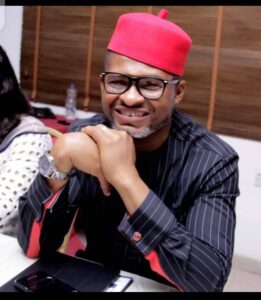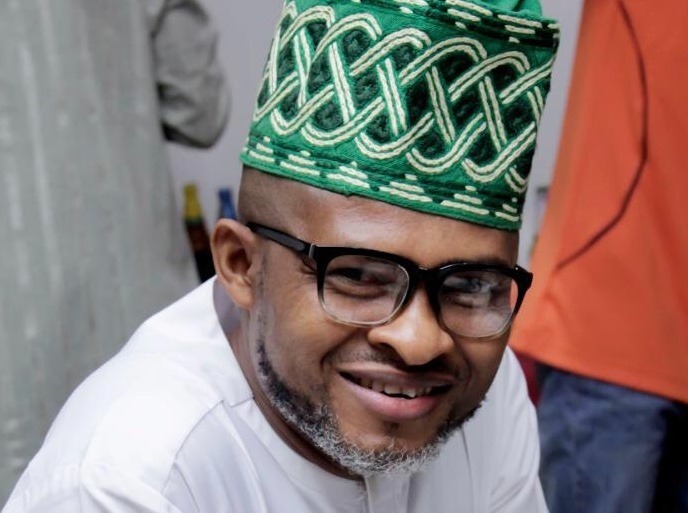Before launching his publication YES INTERNATIONAL Magazine, Azuh Arinze has had vast experience in entertainment and celebrity reporting, including being Editor of Encomium Weekly for eight years. In this interview to mark the tenth anniversary of his magazine, Arinze who is also an author and communication strategist shares insights on the various lessons he has learnt in his various media endeavours.
Congratulations on the upcoming tenth anniversary of your magazine, what will you say prepared you for the journey to becoming a publisher ten years ago?
I immeasurably humbled by the opportunity to talk about the 10th anniversary of YES INTERNATIONAL! Magazine. So, what prepared me for this? Well, I learnt from two of the masters of the game – Messrs Kunle Bakare and Femi Akintunde Johnson. I started out as an intern at Fame Weekly, and because my performance was adjudged outstanding by them, I was offered automatic employment even before the end of the exercise. From there, we moved, after three years, and due to a boardroom squabble, to Encomium Weekly, where I spent 14 years. Out of the 14 years, I served as the editor of Encomium Weekly for eight years. To date, I remain the longest-serving editor of the journal. But before editing Encomium Weekly, we had a sister publication called Reel Stars magazine, strictly for Nollywood, which I also edited at the age of 26, before it was eventually rested. So, all those, combined, prepared me for what we currently do at YES INTERNATIONAL! Magazine. Coupled with that are interminable education and knowledge acquisition as well as the ability to constantly reinvent myself and be novel with some of the things I do.
Ten years on, how well have you been able to achieve the goals you set for yourself at the beginning?
At inception, and till date, our vision has been “To be the first choice of readers and advertisers”. We also wanted to rank among the top three in our sector in five years, which we have accomplished. Now, we may not have attained all the other targets we set for ourselves, but the truth remains that we have covered so many grounds. With every sense of modesty, I would say that in ten years, we have become one of the forces to be reckoned with in our sector, all thanks to first and foremost, the Almighty God, then our readers, advertisers and also our staffers.
Entertainment and celebrity reporting was what you did for years before launching your own magazine, how would you assess the reporting of the beat now?
Like we always say, it can always be done better. But speaking more seriously now, the standard is daily going down. The zeal and quest to break red-hot stories, conduct first-class super-exclusive interviews are no longer there, and that’s the gospel truth. Our people are becoming lazier and lazier. We must therefore endeavour to wake up otherwise things will keep deteriorating.

Your book on your encounters with top personalities through the years contains tips on how journalists should maximize meeting those they cover, what are the major points you want to draw attention to?
Too many points. The first is that journalists must never accept no for an answer. Second, you must be resilient and rugged. Three, you must always be prepared and know what you want. Four, you must be different and distinct in all your dealings. Five, you must dress well and also carry yourself well. Six, you must never stop updating and reinventing yourself. Seven, never write with malice. Eight, cultivate quality relationships and contacts and then maximise them. Nine, engage and roll with the right crowd. Ten, and the most important, is to hold on to God, knowing full well that without Him, we can do nothing. Sincerely, I can go on and on talking about what we all stand to gain by reading ENCOUNTERS – LESSONS FROM MY JOURNALISM CAREER, but let me pause it here for now.
The topic of your company’s tenth-anniversary lecture is Running a successful business in Nigeria: My experience, what is your own experience, especially regarding media business?
Running any business is not easy, how much more the media business. For me, it hasn’t been easy, I must confess. But the Lord has been our strength. Adverts no longer pour in like they used to. Readership of hard copies also keeps shrinking. Even getting quality writers, serious reporters is now so difficult. But we just have to keep pushing. The business environment just keeps becoming more and more inclement. And what that means is that if you fail to reinvent yourself, diversify and modify your business model and module, you will be consumed and go into extinction and oblivion.
It’s often said that journalists are not good businessmen, they know all they need to know about editorial work but don’t know enough to manage their organizations. How true is this? What have you had to learn to keep going ten years on?
Majorly true. And that’s, in fact, the fundamental reason I keep returning to the Lagos Business School, buying and reading quality business books and biographies, seeking the advice and opinions of those who started before me, etc in order not to fall by the wayside. I’m also very observant about innovations and reinventions, which I readily key into. I open my eyes always. I equally listen and observe attentively things happening around me. What that has done for me is that as events unfold, I swiftly key in, lest I get overtaken or consumed.
READ ALSO: ALAKA: SALUTE TO MY ENCOURAGER AT 40
Based on your own experience, what are the multiple streams of income journalists and media organizations should be considering and exploiting?
A – The two major ones are advert and sales. But now that those two are dwindling, every media house has to upgrade by devising new ways. The most critical today is to ensure that they are strong online. When you are credible and strong online, automatically you attract adverts. Another avenue is writing books, which I must confess has really favoured me. Also, we can diversify into other things. We can go into event planning, event management, consultancy, ghostwriting, book publishing, farming, stock trading, real estate, name it. We have too many opportunities to explore now, and like I tell people, it must not only be journalism. The time has come for us to try other things. Because those that invest in media have other things that they do. It is actually what they make from there that they invest in the media. So, why must we continue to focus on just one thing? Even the one thing, sadly, we don’t do well or manage professionally.

You have recently interviewed top media professionals, what are some of the insights they have shared you want journalists to learn from?
The most critical is to never have anything to do with untrue, false and baseless stories. The other one is not to toy with your integrity. Very, very key. Even those that inadvertently allowed one or two unverified stories to go out through them are still living with regret. By the way, one of the new books I am working on is entitled SUCCEEDING AS A JOURNALIST…Critical Things To Know. Among those whose stories we are going to share are Olusegun Osoba, Ray Ekpu, Dare Babarinsa, Yakubu Mohammed, Bisi Olatilo, Dele Momodu, Kunle Bakare, Seye Kehinde, Femi Adesina, Adesuwa Onyenokwe, Dan Agbese, Mike Awoyinfa, Simon Kolawole, Comfort Obi, Funke Egbemode, Reuben Abati, Azubuike Ishiekwene, Gbenga Adefaye, Shola Oshunkeye… I have about 50 of them who have distinguished themselves in the profession. Journalists and non-journalists should watch out for the book next year.
Any other issues you want to speak on?
I would like to implore everybody, not only journalists, never to give up. Keep holding on to God, the author and finisher of our lives, work harder and smarter, believe in yourself, associate and identify with the right people, perpetually reinvent yourself, up your character and competence and hopefully, all other things will align and ultimately get you to your destination.

